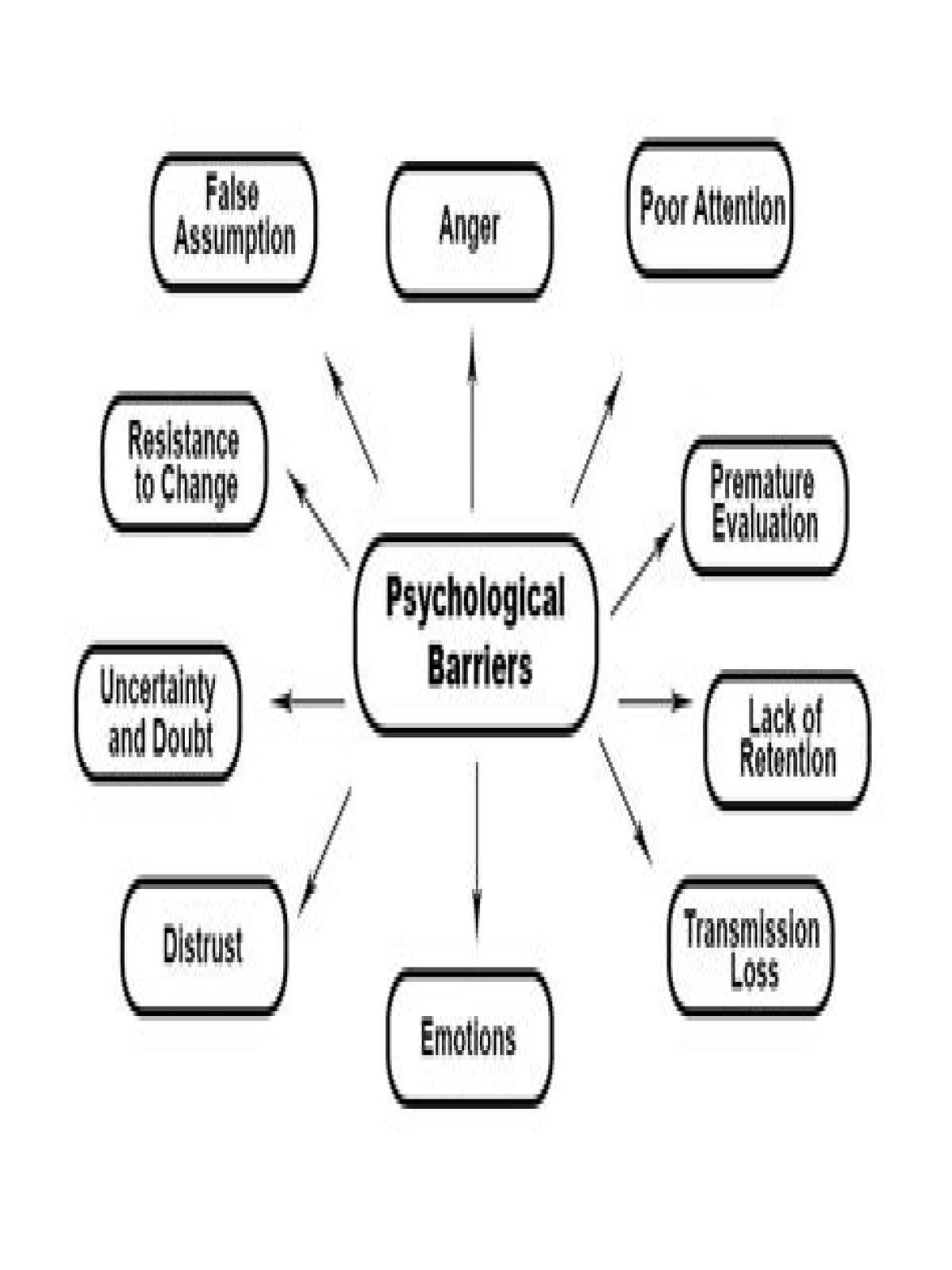Simply so, what are barriers in health and social care?
Geographical Barriers People have a stigma of using certain services e.g. sexual health. Same-sex professional. Any phobia. Fear of losing your independence for example social care in a residential home.
Additionally, what are the psychological barriers to communication? Various other emotions like fear, nervousness, confusion, mistrust and jealousy affect communication process. For example, a person having extreme moods of happiness will laugh at anything at all said to him/her. The same person when sad will cry or get angry at insignificant situations.
Also asked, what is a psychological barrier?
Psychological barriers are beliefs that a person has about himself/helself regarding his ability, potential, self-worth.. they can be called unhealthy or maybe incorrect thought patterns. These can include denial, a perceived lack of social support, a lack of knowledge or a dysfunctional attitude towards the situation.
What are types of barriers?
The Barriers to effective communication could be of many types like linguistic, psychological, emotional, physical, and cultural etc.
What are the barriers to healthcare?
What are social barriers?
What are patient barriers?
What do you mean by barriers?
What factors affect access to healthcare?
How can cultural barriers be overcome in health and social care?
- Learn a few key phrases. Because clear communication is essential for effective functioning, it is necessary that each of your employees understand what your clients and customers need.
- Learn your client's culture.
- Promote appreciation of cultural differences.
- Be open to trying new things.
- Be accommodating.
What are some examples of psychological characteristics?
- warmth.
- emotional stability.
- independence.
- dominance.
- impulsivity.
- sensitivity.
- imagination.
- introversion-extroversion.
What are some examples of psychological noise?
What is an example of psychological?
What is an example of physiological noise?
How do I get over a psychological barrier?
- Emotional management. To be successful, invest in your internal growth and personal development.
- Have a purpose.
- Rise above conformity.
- Renew yourself.
- Walk your talk.
- Remain curious.
- Doubt as motivation.
Which of the following is a psychological barrier to effective listening?
What are the common barriers to effective communication?
- The use of jargon.
- Emotional barriers and taboos.
- Lack of attention, interest, distractions, or irrelevance to the receiver.
- Differences in perception and viewpoint.
- Physical disabilities such as hearing problems or speech difficulties.
What are the five barriers to listening?
- 5 Barriers to effective listening.
- Being preoccupied and distracted.
- Communicating in a noisy environment.
- Your personal mind set.
- Interrupting the other person.
- Your physical state.
What is the definition of physical barriers?
What are attitudinal barriers?
How do you overcome language barriers?
- Use plain language.
- Find a reliable translation service.
- Enlist interpreters.
- Provide classes for your employees.
- Use visual methods of communication.
- Use repetition.
- Be respectful.
